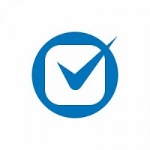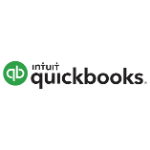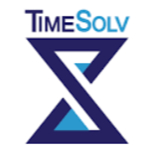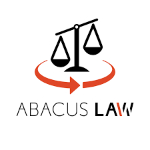TechnologyCounter provides genuine, unbiased real user reviews to help buyers make informed decisions. We may earn a referral fee when you purchase through our links, at no extra cost to you.
List of 15 Best Legal Billing Software
Showing 1 - 15 of 30 productsClio is a software designed specifically for legal professionals. With its user-friendly interface features, Clio streamlines the practice management processes, allowing lawyers to focus on what they do best - providing excellent legal services to th...Read Clio Reviews
Rocket Matter offers a dynamic cloud-based practice management solution for law firms. With its user-friendly interface and streamlined features, Rocket Matter allows attorneys to easily manage their daily tasks, increase efficiency, and improve over...Read Rocket Matter Reviews
PracticePanther is a legal practice management software designed to streamline your legal business and enhance your productivity. Say goodbye to the hassle of manual tasks and hello to efficiency with PracticePanther. Whether youre a solo practitione...Read PracticePanther Reviews
Tabs3 Billing is a all-in-one billing solution for law firms. Designed specifically for legal professionals, Tabs3 Billing streamlines your billing process, increases efficiency, and improves accuracy. With its intuitive interface and powerful featur...Read Tabs3 Billing Reviews
CosmoLex, the all-in-one solution for legal practice management. Designed specifically for law firms, CosmoLex streamlines tasks and simplifies processes, allowing you to focus on what matters most - serving your clients. From time and billing to doc...Read CosmoLex Reviews
LEAP Legal is a top-of-the-line, innovative software designed specifically for legal professionals. With its user-friendly interface features, it simplifies and streamlines everyday tasks for lawyers, allowing them to spend more time on what matters...Read LEAP Legal Reviews
QuickBooks Online is a user-friendly accounting software designed to simplify financial management for small businesses. With its cloud-based platform, users can easily access and organize their financial data anytime, anywhere. From creating invoice...Read QuickBooks Online Reviews
Timeslips the ultimate time and billing software for businesses of all sizes. With Timeslips, you can easily track billable hours, generate invoices, and manage projects all in one user-friendly platform. Say goodbye to manual timekeeping and hello t...Read Timeslips Reviews
Chaos Legal, the newest innovation in legal software. Designed to streamline and simplify the chaos of daily legal tasks, this platform is a game-changer for law professionals. With its user-friendly interface features, Chaos Legal revolutionizes how...Read Chaos Legal Reviews
Smokeball is a solution for all your legal practice management needs. This innovative software streamlines and automates every aspect of your work, allowing you to focus on what matters most - providing top-notch legal services to your clients. From...Read Smokeball Reviews
Bill4Time Billing is a software designed to simplify and streamline your billing process. With its user-friendly interface and powerful features, it is the perfect solution for businesses of all sizes. From time tracking to invoicing, Bill4Time is th...Read Bill4Time Billing Reviews
AccountEdge offers a comprehensive accounting software for small businesses. It efficiently manages assets, liabilities, bank accounts, and tracks double entry to ensure accurate financial records. With the ability to easily generate annual budgets...Read AccountEdge Pro Reviews
AbacusLaw, a leading legal practice management software designed to streamline and simplify the complex processes of running a law firm. With advanced features interface, AbacusLaw is a solution for managing cases, clients, documents, and billing eff...Read AbacusLaw Reviews
SimpleLegal is a legal software that streamlines operations and empowers legal teams to work smarter, faster, and more efficiently. With its intuitive interface and robust features, SimpleLegal enhances the modern legal process and transforms the way...Read SimpleLegal Reviews
CARET Legal is a solution for all your legal needs. With its advanced technology and user-friendly interface, CARET Legal streamlines the legal process, making it efficient and hassle-free. Say goodbye to complex legal tasks and hello to simplified s...Read CARET Legal Reviews
- What Is Legal Billing Software?
- Top Reasons Why Businesses Need Legal Billing Software?
- What Are the Top Key Features of Legal Billing Software?
- What Are the Top Benefits of Legal Billing Software?
- What Are the Steps to Choose the Right Legal Billing Software?
- What Are the Types of Legal Billing Software for Different Industries?
- What Are the Technology Trends for Best Legal Billing Software?
- What Are the Deployment Options for Legal Billing Software?
What Is Legal Billing Software?
Legal billing software refers to a computer application designed to assist legal professionals in effectively managing the generation of bills and the processing of payments related to their legal services. Legal professionals are commonly afforded the ability to generate, save, oversee, and monitor billing information and data using this system.
The provided information encompasses the rate, services rendered, and the outstanding balance owed by the consumer. In addition, the software enables legal professionals to effectively monitor the duration of time allocated to individual cases, efficiently handle deadlines and assignments, and generate invoices for clients.
Additionally, it has the capability to monitor revenue, expenditures, outstanding payments, and various financial statements. Furthermore, the software possesses advantageous functionalities including task scheduling, document management, and case management.
This implies that legal professionals has the capability to effectively monitor the services rendered to clients and the corresponding amount of remuneration owing. The utilization of online legal billing software enables lawyers to effectively and proficiently administer their financial matters, hence ensuring the receipt of payment for the services rendered.
Top Reasons Why Businesses Need Legal Billing Software?
1. This software enhances the efficiency of the legal billing process by enabling users to generate and submit invoices and bills automatically.
2. Precise monitoring of time and provision of services for the client.
3. The implementation of automated systems for payment tracking and reconciliation with clients.
4. Automated fee and cost computations are a process in which computational algorithms are employed to determine and compute financial charges and expenses.
5. The implementation of automated processes for the generation and delivery of recurring retainer invoices.
6. The online legal billing software possesses sophisticated reporting functionalities.
7. The implementation of automated reminders for unpaid invoices and payments is a valuable tool in streamlining the financial management process.
8. Enhanced visibility of financial information for both the clientele and the enterprise, providing valuable insights into patterns and expenditures.
9. Enhanced measures to ensure heightened security and privacy of client billing information.
10. Automated record-keeping systems are utilized to ensure adherence to compliance regulations and facilitate the auditing process.
11. Employing legal terminology in invoicing.
12. The incorporation of various software applications, including e-mail software, client relationship management (CRM) software, document management software, accounting software, project management software, and calendar management software.
13. The process of transmitting electronic invoices and doing electronic payments.
14. The automated monitoring of trust accounts.
15. Employing diverse international currencies and payment modalities.
What Are the Top Key Features of Legal Billing Software?
1. Automated Billing: Legal billing software is designed to streamline and automate the complete billing procedure within the legal industry. This software encompasses various functionalities, including invoice generation, payment tracking, and issuing payment reminders.
This practice effectively minimizes time consumption, enhances precision, and mitigates the potential for human fallibility.
2. Client Management: Legal billing systems software provides a range of client management functionalities, including the ability to monitor and manage client information, contacts, and associated responsibilities.
This functionality facilitates the maintenance of a current and well-structured roster of clients for legal firms.
3. Time Tracking: The online legal billing software enables users to precisely monitor the amount of time dedicated to each case or customer, generating comprehensive time records that may be utilized for the purpose of generating invoices and monitoring payments.
4. Multicurrency and Payment Gateway Support: Legal billing systems software offers support for multiple currencies, hence facilitating international business transactions for law firms.
Furthermore, the program frequently has a payment gateway feature, enabling clients to conveniently settle their invoices through online payment methods.
5. Reporting and Analytics: Legal billing software offers comprehensive reporting and analytics that facilitate informed decision-making and financial management for law businesses.
6. Customizable Templates: Legal billing systems software offers users the ability to generate personalized invoices efficiently through the use of customized templates.
7. Secure Storage: The utilization of cloud-based legal billing software facilitates the establishment of a secure repository for the storage of shared data and financial information.
8. Mobile Compatibility: The utilization and administration of online legal billing software using mobile devices facilitate the convenient financial management of law businesses while on the move.
9. Integration with other Software: The integration of legal billing software with other company software, such as accounting systems and customer relationship management (CRM) tools, facilitates the maintenance of correct and current data.
What Are the Top Benefits of Legal Billing Software?
1. Improved Accuracy: The online legal billing software streamlines operational procedures and eradicates the need for manual data input, thereby mitigating errors and enhancing precision.
2. Improved Efficiency: The utilization of top legal billing software for process automation results in a reduction of duties that would have otherwise required significantly more time and effort if performed manually, hence leading to time and resource savings.
3. Streamlined Invoicing: Legal billing systems software offers the advantage of expediting and simplifying the billing process by automatically tracking time, hence facilitating the creation of invoices in a more efficient manner.
4. Improved Reporting Capabilities: Cloud-based legal billing software facilitates enhanced monitoring, categorization, and documentation of billing and remittance activities.
5. Enhanced Security: Legal billing systems software employs state-of-the-art security features to safeguard data, including end-to-end encryption, multi-factor authentication, and additional protective measures.
6. Automated Payment Processing: The implementation of the best legal billing software has the potential to streamline payment procedures by replacing manual payments and processing with automated payment choices, hence enhancing the security and efficiency of financial transactions.
7. Increased Visibility: The utilization of legal billing software generates reports that enhance operational transparency, hence facilitating more informed decision-making.
8. Lower Overhead Costs: Legal billing software has the potential to decrease overhead expenses by automating operations and removing the need for manual labor.
What Are the Steps to Choose the Right Legal Billing Software?
1. Determine your current needs: It is of utmost importance to ascertain the precise requirements of the practice prior to the selection of top legal billing software. The principal objective of the program should be to enhance the efficiency, precision, and security of billing activities.
2. Research the available options: Upon conducting an evaluation of the organization's requirements, it becomes imperative to undertake a comprehensive investigation of the best legal billing software systems that are now accessible.
When evaluating a product or service, it is important to take into account many factors such as features, pricing, user feedback, and platform capabilities.
3. Narrow down the choices: Generate a compilation of the most favorable options based on first investigation. This analysis will compare several aspects of the examined product, including its features, multiple user capabilities, scalability, interface, support choices, and cost.
4. Reach out for demos: Once the options have been narrowed down, it is advisable to establish contact with the sellers in order to arrange product demonstrations. It is imperative to ascertain the compatibility of the software with the intended purpose, as well as to evaluate the quality of customer service and training provided.
5. Analyze your decision: Upon careful consideration, this analysis aims to evaluate the most suitable legal billing systems software based on specific requirements, pricing, and functionalities. Conduct a comprehensive assessment of the incurred expenses and deliberate on the appropriateness of the decision in its entirety.
6. Make the final choice: Conclude the decision-making process and proceed with the acquisition of the cloud-based legal billing software. If feasible, it is recommended to closely observe and oversee the changeover process while offering constructive criticism to the vendor.
What Are the Types of Legal Billing Software for Different Industries?
Various industries have access to a range of cloud-based legal billing software options, which cater to the specific needs of different sorts of law firms.
Generally speaking, the following are the most common types of billing software used in the legal industry:
1) Case Management Software: The best legal billing software is specifically developed to assist law firms in effectively monitoring their cases and optimizing the efficiency of completing case-related activities.
The software provides a range of functionalities including document management, pre-designed legal document templates, case assignment and calendar management, as well as billing and invoicing capabilities.
2) Document Management Software: The aforementioned software is a specialist tool utilized for the purpose of managing legal documents. The utilization of this technology facilitates the efficient archiving and safeguarding of digital documents, encompassing both scanned and modified iterations.
Typically, it encompasses the incorporation of indexing, search capabilities, and the facilitation of cloud-based data exchange.
3) Online Specialist Software: This software facilitates the provision of specialized legal services by law firms through internet platforms. The system is equipped with browser-based interfaces that facilitate document editing, document sharing, and communication capability.
4) Practice Management Software: This particular software has been specifically developed to assist law firms in effectively managing their day-to-day operations. The typical components encompassed within this framework consist of scheduling, customer administration, billing, and process modules.
5) Time and Billing Software: The utilization of top legal billing software allows law firms to effectively monitor the duration of time allocated to each case and thereafter generate invoices for the provision of their legal services to clients.
Moreover, it has the capability to generate comprehensive reports and invoices.
6) Legal Accounts Software: This particular software aids legal firms in managing and supervising their financial matters. This software provides organizations with several financial tools, including ledger accounts, cash flow forecasts, invoicing, and monthly statements, among other activities.
What Are the Technology Trends for Best Legal Billing Software?
The prevailing technology trends in the realm of the best legal billing software encompass several aspects such as cloud-based solutions, protocols ensuring data protection, automated billing and payment processing, thorough audit trails, and digital collaboration tools.
Cloud-based solutions enable remote access to billing platforms from any computer or mobile device, so facilitating the ability of teams to work from diverse locations while upholding billing precision.
Data security protocols are implemented to ensure the secure encryption of any data that is passed between systems, with the primary objective of safeguarding confidential client information.
Automated billing and payment processing is an efficient method that optimizes the invoicing process, frequently incorporating automated reminders to clients to facilitate prompt payment. Comprehensive audit trails offer attorneys and clients meticulous records of accounts, enabling them to conduct precise evaluations of their billing actions.
In conclusion, digital collaboration technologies serve to enable attorneys to engage in secure communication and exchange of documents, so ensuring a safe environment for collaborative efforts on their projects.
What Are the Deployment Options for Legal Billing Software?
Deployment options for top legal billing software vary depending on the software. Common deployment options include:
1. On-Premise: The software is deployed on the local servers of the organization and is hosted within their data centers. The management of the system necessitates the presence of an internal IT team.
2. Cloud-Based: The cloud-based legal billing software is deployed on a cloud infrastructure and overseen by the information technology (IT) team of the software supplier.
3. Hybrid: The integration of both on-premise and cloud-based deployment is employed to achieve best performance.
4. Software as a Service (SaaS): The proposed business model entails a subscription-based service that provides software as a service, allowing users to pay exclusively for the specific functionalities they require.
This particular deployment methodology facilitates the capacity to scale and maintain the system with ease.















